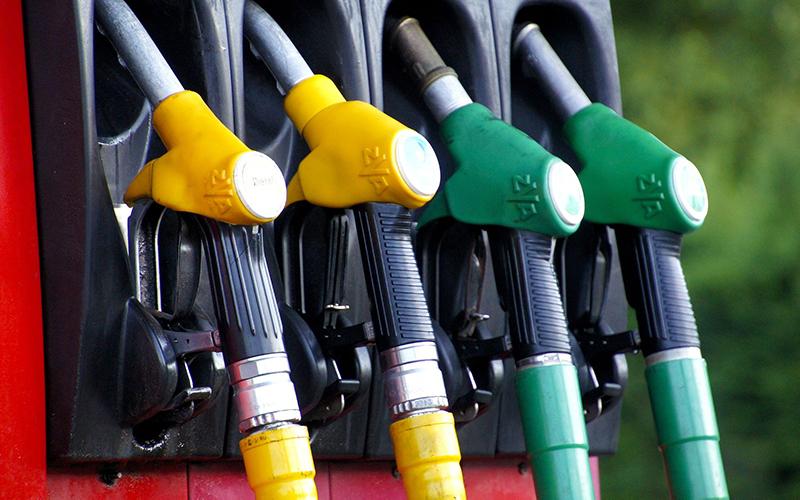
Fuel for thought: E10 to be introduced during summer
To meet global targets, the biggest emitters of greenhouse emissions are required to implement emission-reducing initiatives. As the biggest emitter of greenhouse gases in 2019, the transport industry - or at least a part of it - is first to face changes, with proposals to transition to E10 petrol from summer 2021.
There is potential to change the composition of petrol to produce (slightly) fewer greenhouse gases during combustion in engines of all sizes. Whilst this new variant of petrol is (slightly) better for the environment and unlikely to affect the majority of car owners, operators of 2-stroke and 4-stroke petrol-powered landscape equipment are encouraged to pay attention to what fuel they are using from summer 2021 to avoid negative consequences from the change.
Most members will have heard of the term ‘biofuel’, which is broadly defined as fuel produced from plant or animal matter, as opposed to the traditional geological processes involved in fossil fuel production. Ethanol is a type of biofuel that can be produced via a process of fermentation from any raw material which contains a high proportion of sugar or starch, commonly sugar cane, sugar beet and molasses. Fossil fuels may be combined with ethanol.
Most standard unleaded petrol currently sold in the UK contains 5% ethanol and features an ‘E5’ label on the pump. From summer 2021 the proportion of bioethanol will increase to 10% and be labelled ‘E10’.
Whilst increased ethanol use is of potential benefit to the environment, it poses challenges to owners of smaller petrol-powered equipment and Association members should be aware of the following potential issues:
- Ethanol can cause problems in older machinery by dissolving soft materials used in parts such as seals and gaskets, not designed to be immersed in petrol which contains ethanol. Prolonged exposure to ethanol can result in parts failing, resulting in fuel leaks or poorly running engines. When in long term storage (for example, during the winter), fuel containing ethanol may also become acidic and cause corrosion of aluminium, zinc and galvanised materials, brass, copper and lead/tin coated steels – all of which are likely to be found in older engines.
- Due to its propensity to absorb – and later separate – from water, ethanol can cause water to settle within parts of the engine such as the fuel tank, carburettor, or fuel injection system and cause difficult starting and even corrosion. Consequently, landscape equipment stored for a period of more than 30 days may be difficult to start and require stale fuel draining from the fuel system prior to use.
Engines fitted to landscape equipment sold within the past 10 years are generally compatible with petrol containing ethanol, to the extent that the materials used in their manufacture are resistant to the potentially corrosive effects of ethanol. Although guidance differs between manufacturers (and the instruction manual should be the first point of reference), most equipment sold within the last 10 years can be run on either E5 or E10 petrol without any modification.
Owners of older equipment, or those who wish to avoid running their equipment on fuel with 10% ethanol, have options:
- Several manufacturers offer fuel specifically formulated for new and old landscape equipment which contains no ethanol. For example, Supplier member Stihl produce Moto4Plus for 4-stroke engines and MotoMix for 2-stroke engines. Aspen is another brand who offer ethanol free fuels and pre-mixed 2-stroke fuel for landscape equipment.
- From September 2021, all premium or super-unleaded fuel will be sold with a lower 5% ethanol content for the foreseeable future. This fuel is more expensive than standard unleaded but ensures greater compatibility with older engines.
Regardless of equipment age, however, is the need to ensure the correct procedure is followed prior to storage of machinery for more than 30 days, to prevent equipment damage and breakdown.
Guidance differs between manufacturers, with some suggesting all fuel is drained from machines prior to storage, whereas others suggest an additive – commonly called fuel stabilisers - may be added to the fuel tank prior to machine storage to prevent petrol from deteriorating. Owner’s manuals should be the consult if in doubt. The ethanol-free fuels discussed earlier can remain in machines without issue and generally have a storage life of several years.
The change to E10 fuel is a quick fix whilst longer-term sources of power, which produce fewer greenhouse gases, are developed. Despite advances in battery technology, gaps remain in product capability and user needs, which means petrol and diesel engines will remain for the foreseeable future.
Further reading:
